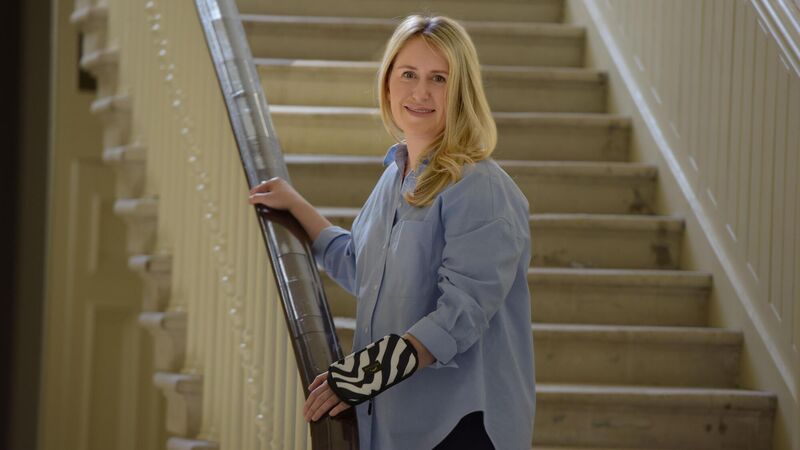Creating magic out of dust and rocks: Meet Susan Furniss-Radley

Susan Furniss Radley, Photograph Moya Nolan
Try from €1.50 / week
SUBSCRIBEWE MEET in the echoing, cavernous, and somewhat cluttered entryway of the Temple Theatre, the former nightclub and church located next to Temple Street Children’s Hospital in Dublin 1.
I’ve been brought here by Susan Furniss-Radley, a blonde, youthful and backpacked mother of three boys (Rex, 11; Hunter, 9; and River, 5) from the Temple Street canteen. She had politely asked, “Do you want to come somewhere quieter?”, before stopping to smile with everyone on our three-minute journey across the busy street.
Already a subscriber? Sign in
You have reached your article limit.
Annual €130 €80
Best value
Monthly €12€6 / month
Introductory offers for new customers. Annual billed once for first year. Renews at €130. Monthly initial discount (first 3 months) billed monthly, then €12 a month. Ts&Cs apply.
CONNECT WITH US TODAY
Be the first to know the latest news and updates
Newsletter
The best food, health, entertainment and lifestyle content from the Irish Examiner, direct to your inbox.
Newsletter
The best food, health, entertainment and lifestyle content from the Irish Examiner, direct to your inbox.
© Examiner Echo Group Limited